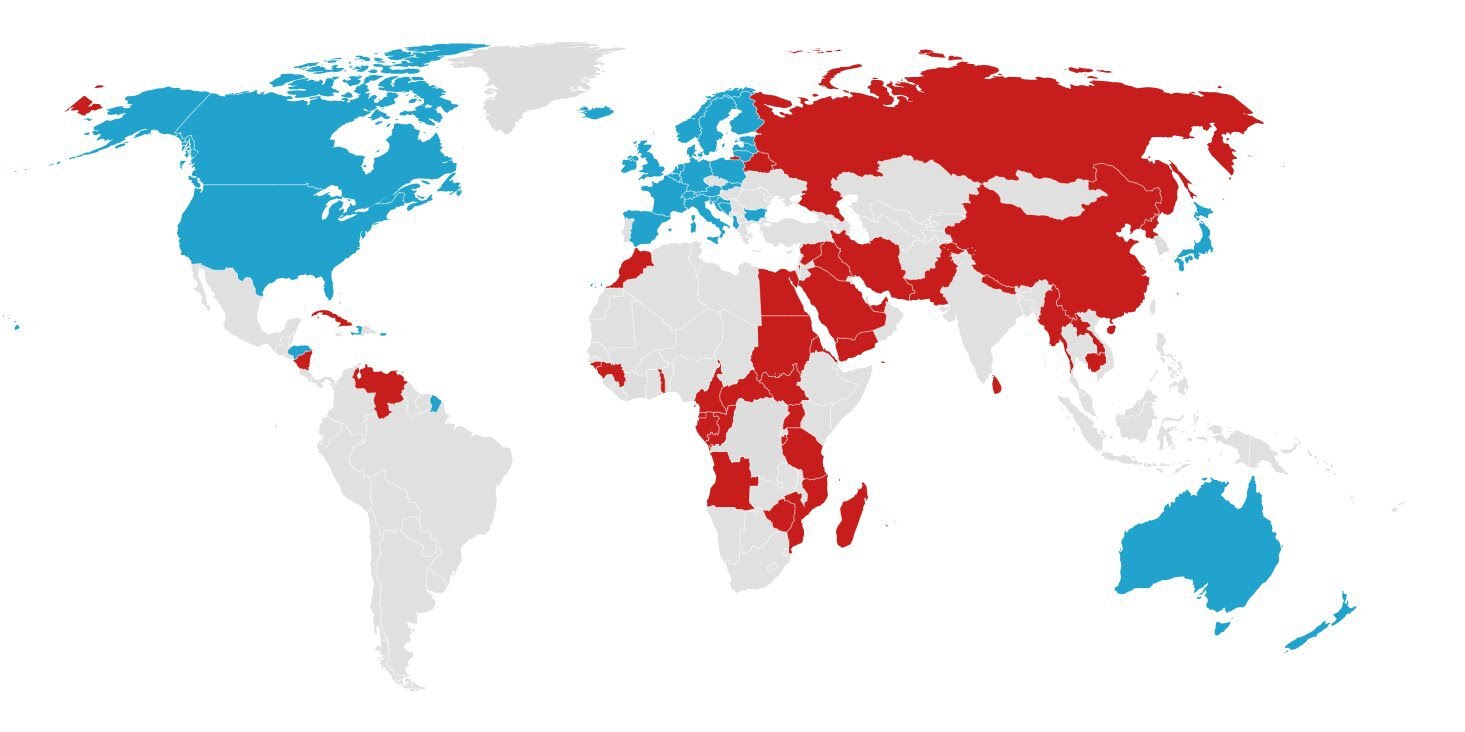Criticism of China’s Xinjiang policies grows at UN
Diplomats at the UN delivered another round of dueling joint statements on China’s Xinjiang policies this week. The group of 39 countries criticizing Beijing was the largest yet, and Turkey separately raised concerns over human rights.

For over two years, a major task for Chinese diplomats at the United Nations has been to rally support for China’s policies in Xinjiang, and respond to criticism from the U.S. and other Western countries. That high-level diplomatic war of words has continued this week, but first, here is a brief timeline of relevant events at the United Nations:
- August 2018: The situation in Xinjiang first comes to widespread international attention when the UN Committee on the Elimination of Racial Discrimination (CERD) receives reports from countries and civil society groups. A Reuters headline characterizes the outcome of that committee meeting this way: U.N. says it has credible reports that China holds million Uyghurs in secret camps.
- July 2019: The ambassadors of 22 countries write to the UN Human Rights Council condemning China’s treatment of Muslim minorities. This includes Australia, Canada, Japan, and many Western European countries, but not the United States, which had quit its position on the council a year earlier. China responds with a letter signed by 37 states that expresses support for China’s ethnic policies in Xinjiang as a successful “counter-terrorism and deradicalization” program.
- September 2019: China goes on the offensive and brings up the issue of Xinjiang, defending Beijing’s policies publicly in front of the UN Security Council for the first time.
- October 2019: Fifty-four countries read a joint statement supporting China’s policies, and 23 countries — now including the U.S. — read a joint statement condemning “arbitrary detention” of Uyghurs and others.
- July 2020: A group of 27 countries express concern to the UN Human Rights Council, and China rallies a group of 46 countries to push back.
This week, more countries criticized China. Germany, on behalf of 39 countries, delivered a statement on October 6 that:
- Said the group is “gravely concerned about the existence of a large network of ‘political re-education’ camps [in Xinjiang] where credible reports indicate that over a million people have been arbitrarily detained.”
- Called on China “to allow immediate, meaningful and unfettered access to Xinjiang for independent observers including the UN High Commissioner for Human Rights…to urgently implement CERD’s eight recommendations related to Xinjiang, including by refraining from the arbitrary detention of Uyghurs and members of other minorities.”
- Also expressed concern about the rights of Tibetans, and that “a number of provisions in the Hong Kong National Security Law do not conform to China’s international legal obligations.”
Separately, Turkey expressed concern about Xinjiang and the “human rights situation” in the region. In the country’s statement to the General Assembly, ambassador Feridun Hadi Sinirlioğlu also called on CERD’s recommendations to be implemented, and emphasized:
As a country having ethnic, religious and cultural ties with the Uyghur Turks, we have been particularly alarmed by the recently published reports and news on human rights practices against the Uyghur Turks and other Muslim minorities in Xinjiang…
Finally, we preserve our expectation for a meaningful, full-fledged and unrestricted visit of the UN High Commissioner for Human Rights to Xinjiang, and that China acts in a transparent manner on this issue.
Turkey’s statement is significant because of its especially large Uyghur refugee population, and because the country has wavered in recent years on how to approach the Uyghur issue.
“There was overwhelming support for China during the meeting”
As with previous waves of criticism, China rallied a group of countries to issue a response. Cuba, on behalf of 45 countries, read a statement “supporting China’s counter-terrorism and deradicalization measures in Xinjiang.”
China accused the “U.S., Germany, the U.K. and a few other countries” of making “groundless accusations” and “provoking confrontation among member states” in a statement by the Chinese mission to the UN.
- “Nearly 70 countries have echoed China’s position. In support of China, Pakistan made a joint statement on behalf of 55 countries on Hong Kong, Cuba made a joint statement on behalf of 45 countries on Xinjiang, and Kuwait made a joint statement on behalf of three Gulf states. A large number of countries supported China in their national statements… There was overwhelming support for China during the meeting,” the statement claimed.
- “The U.S. and a few other countries’ attempt to smear China’s human rights record failed completely once again.”
- Zhāng Jūn 张军, China’s ambassador to the UN, suggested that instead of scrutinizing China’s Xinjiang policies, the UN should “pay attention to racial discrimination and police violence in the U.S.” and “discuss the issue and adopt a resolution on it.”
Back in Beijing, Chinese Foreign Ministry spokesperson Huà Chūnyíng 华春莹 commented on the collection of back-and-forth statements at the UN, and accused a “small number of external forces” of “creating instability, division or unrest in China, and political manipulation and interference in China’s internal affairs under the cloak of Hong Kong- and Xinjiang-related issues” (English, Chinese).
What does this all mean?
Chinese diplomats have ramped up their rhetoric another notch in defending Xinjiang policy in this latest round of UN diplomacy. This makes sense, as just last month, Chinese leader Xí Jìnpíng 习近平 publicly defended his policies in Xinjiang as “completely correct.”
What we concluded from Xi’s comments then is the same conclusion now: China appears set to totally ignore international criticism, even as the condemnations get louder and include more explicit references to genocide. However, as that criticism grows, it becomes more likely that the U.S. and its allies will boycott the Beijing 2022 Olympics. Just yesterday, British Foreign Secretary Dominic Raab said he would not rule out such a boycott.
The question to ask now: How many of the 39 countries signing the joint statement this week will seriously consider boycotting the Olympics?






